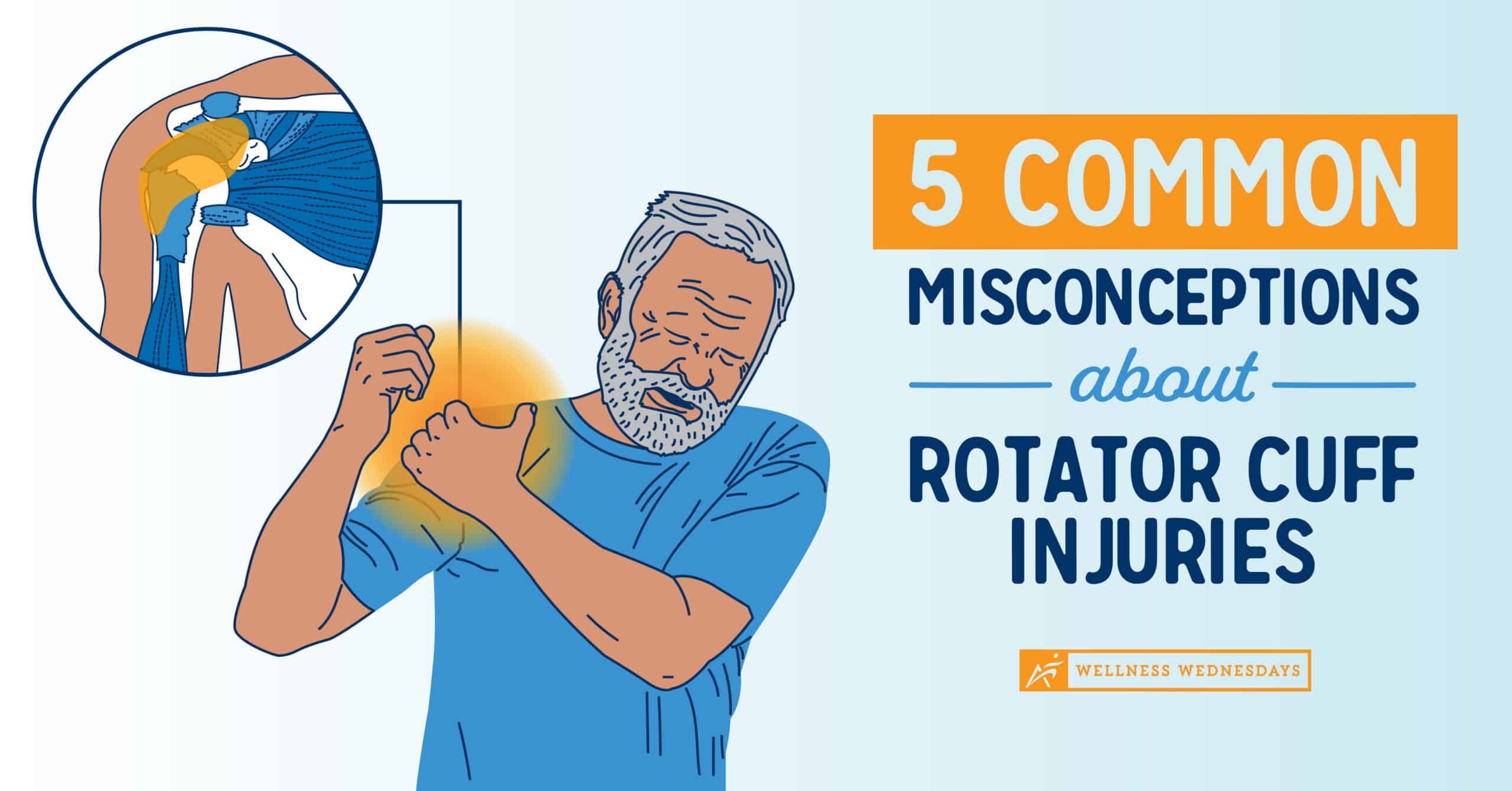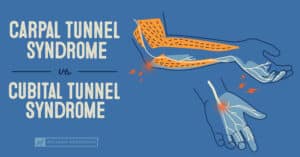Most upper body movements require a certain amount of shoulder strength and range of motion. Rotating the shoulder, lifting weights, and even putting your arms over your head utilize the mobility of the shoulder joint. To help protect the ball-and-socket joint, a group of muscles and tendons called the rotator cuff works together to help stabilize the shoulder and rotate the arm. Joint instability and pain may result from injury or tear to the rotator cuffs. Let’s get into the nitty-gritty go through five common misconceptions about rotator cuff injuries and the facts behind them!
Addressing 5 Common Misconceptions About Rotator Cuff Injuries
1. “Rotator Cuff Tears Are Uncommon.”
While they may often be confused with other shoulder injuries like tendonitis or bursitis, rotator cuff tears are still considered extremely common, affecting millions of Americans each year. While a tear can happen to anyone, individuals who are older or compete in sports requiring repetitive shoulder use are more likely to experience a rotator cuff tear.
2. “An MRI Is Needed To Diagnose A Rotator Cuff Injury.”
The MRI is a useful diagnostic tool in healthcare that can help you discover potential sources of pain and accurately assess an injury. It is an extremely popular test because it can provide a clear image of most soft tissue injuries when compared to an x-ray.
Even though they can be used to help diagnose an injury, MRIs can be costly and are not always necessary for diagnosis. Many rotator cuff injuries can be diagnosed through more traditional means like functional movement screens that test your shoulder’s strength and range of motion.
3. “I Need Surgery To Fix A Rotator Cuff Injury.”
Contrary to popular belief, many rotator cuff injuries can recover without surgery. Conservative care options like rest, ice, and physical therapy are often the first steps taken to treat a rotator cuff injury. Surgery may be recommended if the rotator cuff is completely torn and pain persists after nonsurgical methods. Your doctor can help guide you through the recovery process and help you determine the best course of action to take.
4. “Arm Movement Is Impossible With A Rotator Cuff Tear.”
There are two types of rotator cuff tears – a partial tear and a complete tear. A partial rotator cuff tear means the tendons are damaged but still attached to the bone. In the case of a complete tear, the affected tendon separates from the bone. In both cases, shoulder weakness and pain are common symptoms that can make some arm movements difficult. Fortunately, these injuries are not permanent and can recover quickly when given proper treatment.
5. “Exercise Makes Rotator Cuff Injuries Worse.”
While it is true that some activities can make your injury worse, especially if you’re adding more weight or stress than the shoulder can handle, you do not have to take a break from exercise altogether. Long periods of inactivity may be detrimental as it increases your risk of developing frozen shoulder.
On the contrary, some exercises help strengthen your shoulders and help relieve rotator cuff pain. A healthcare professional can prescribe an exercise routine that works for your needs, ensuring you can continue to recover safely while enjoying the benefits of exercise.
Find Fast Relief From Rotator Cuff Pain
Whether you’ve experienced a recent injury or have been struggling with chronic pain for months, Airrosti Providers are here to help you. Our Providers work to find the root cause of your pain and fix injuries at the source for long-lasting relief.
Your Provider will perform a thorough injury assessment and diagnosis and develop a treatment plan tailored to your individual needs. By combining deep-tissue manual therapy with a customized active rehab plan, Airrosti can help resolve most soft-tissue injuries often within an average of 3 visits (based on patient-reported outcomes).
If you are ready to take control of your health and recovery, schedule an appointment today. Airrosti offers both in-clinic and virtual appointment options.
For more information, call us at (800) 404-6050.
Read our Medical Disclaimer here.










